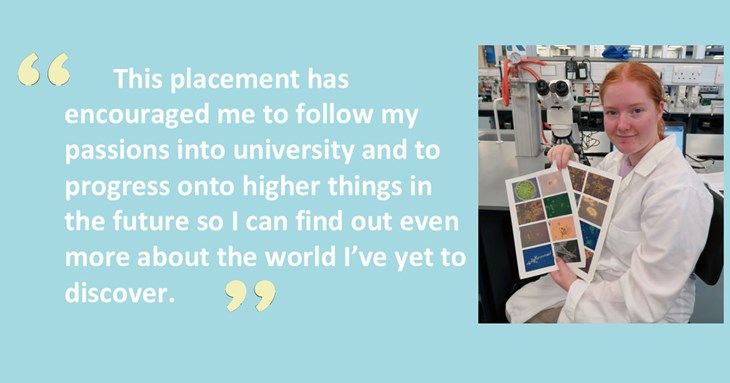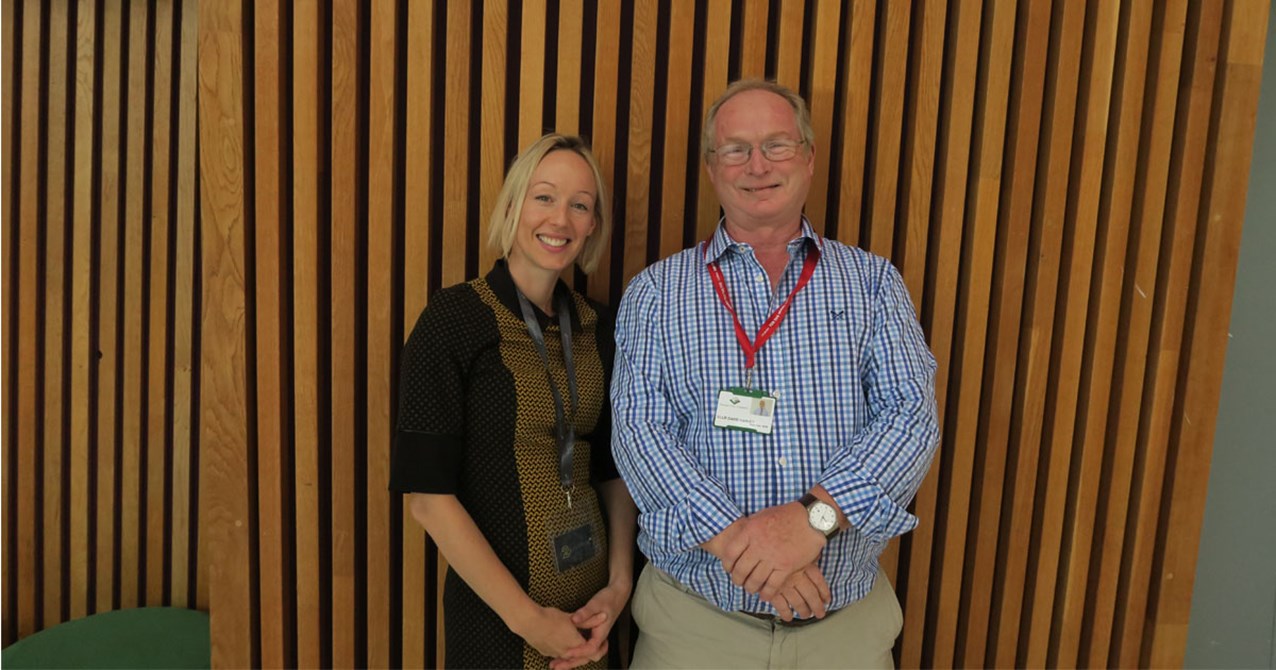Students grab lab time as part of City Council backed initiative
Published: 6 September 2019

Students from disadvantaged backgrounds have been enjoying lab placements and careers coaching as part of a scheme backed by Exeter City Council.
In2Science aims to widen access to STEM (science, technology, engineering and maths) degrees and careers – which on average are more stable and more highly paid than other fields.
Thirteen A-level students from disadvantaged backgrounds across Exeter – either on free school meals or whose parents don’t have a degree – took advantage of the scheme over the summer.
In2Science has a remarkable record in helping students gain top university places and is financially supported by the City Council.
For the scheme, students are matched up with local scientists and researchers for two-week lab placements. They are also invited to attend skills and careers workshops.
Exeter College student Caroline Tamblin spent her placement at the University of Exeter trying to solve which bad bacteria was causing damage to mammalian tissues in local pond water.
By extracting the DNA, analysing it using a DNA sequencing machine and using a microscope to compare it to known samples she was able to work towards the solution.
Caroline said: “This placement has encouraged me to follow my passions into university and to progress onto higher things in the future so I can find out even more about the world I’ve yet to discover.”
Exeter is the first city outside of the South East to get involved with the scheme. Over 2,000 A-level students apply each year and up until now the scheme has had to turn away students who don’t live in the South East, as it hasn’t had the necessary funding.

Cllr David Harvey (pictured above with Rebecca McKelvey, Director at In2Science), Lead Councillor with responsibility for growth and economy, said the scheme was great for local students and businesses: “The students will go back into their final year of A-level study better equipped for the future with valuable lab experience and the confidence needed for university and a career in our growing science sectors,” he said.
“Programmes like this enable business in Exeter to showcase themselves to their potential future workforce, enabling Exeter to retain its talent and support the local economy,” he added.
Evaluation of the scheme has found that 81% of In2Science students go on to study at university, with 46% going on to a top university. In the UK overall, only 11% of students from low-income backgrounds go to a top university.
